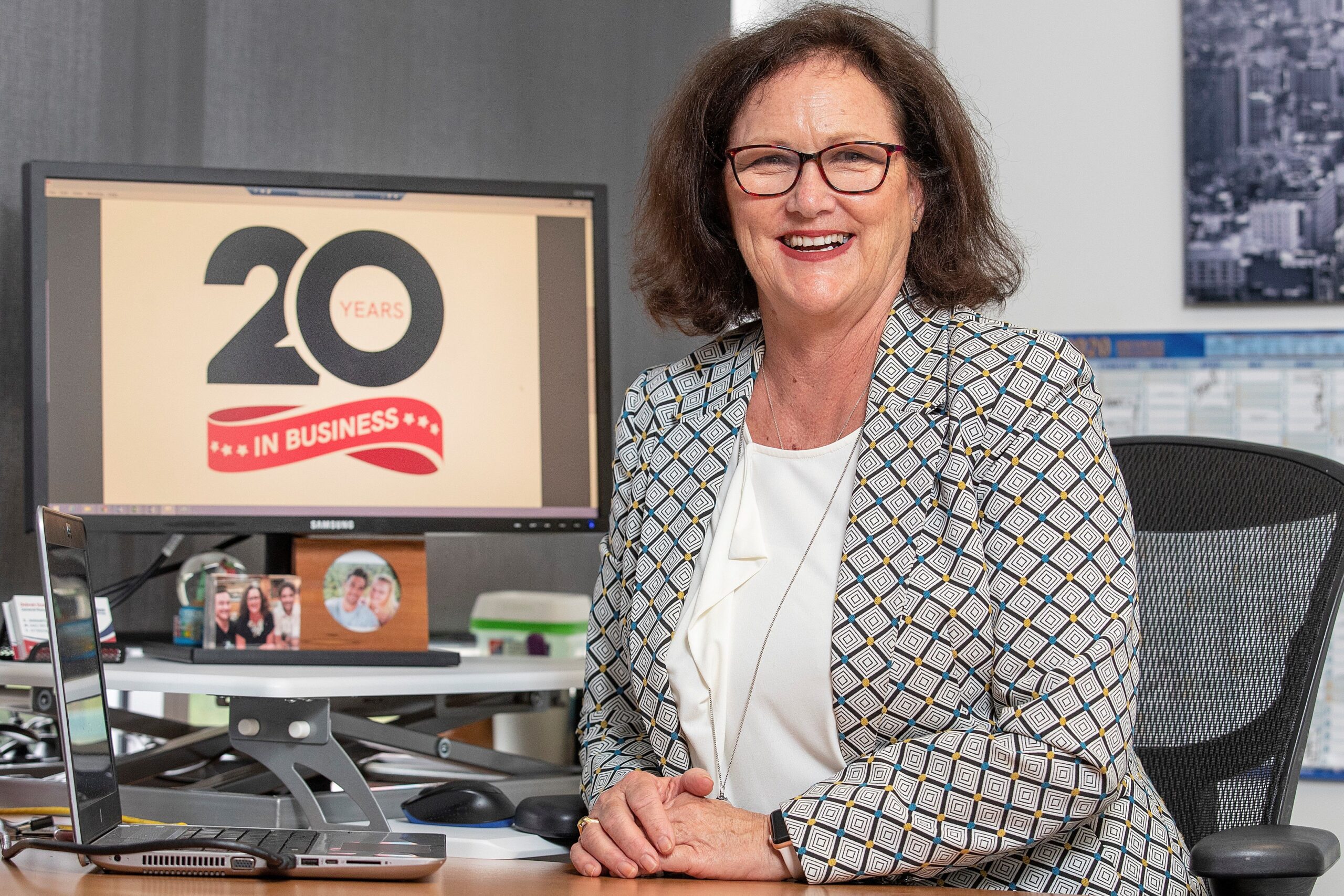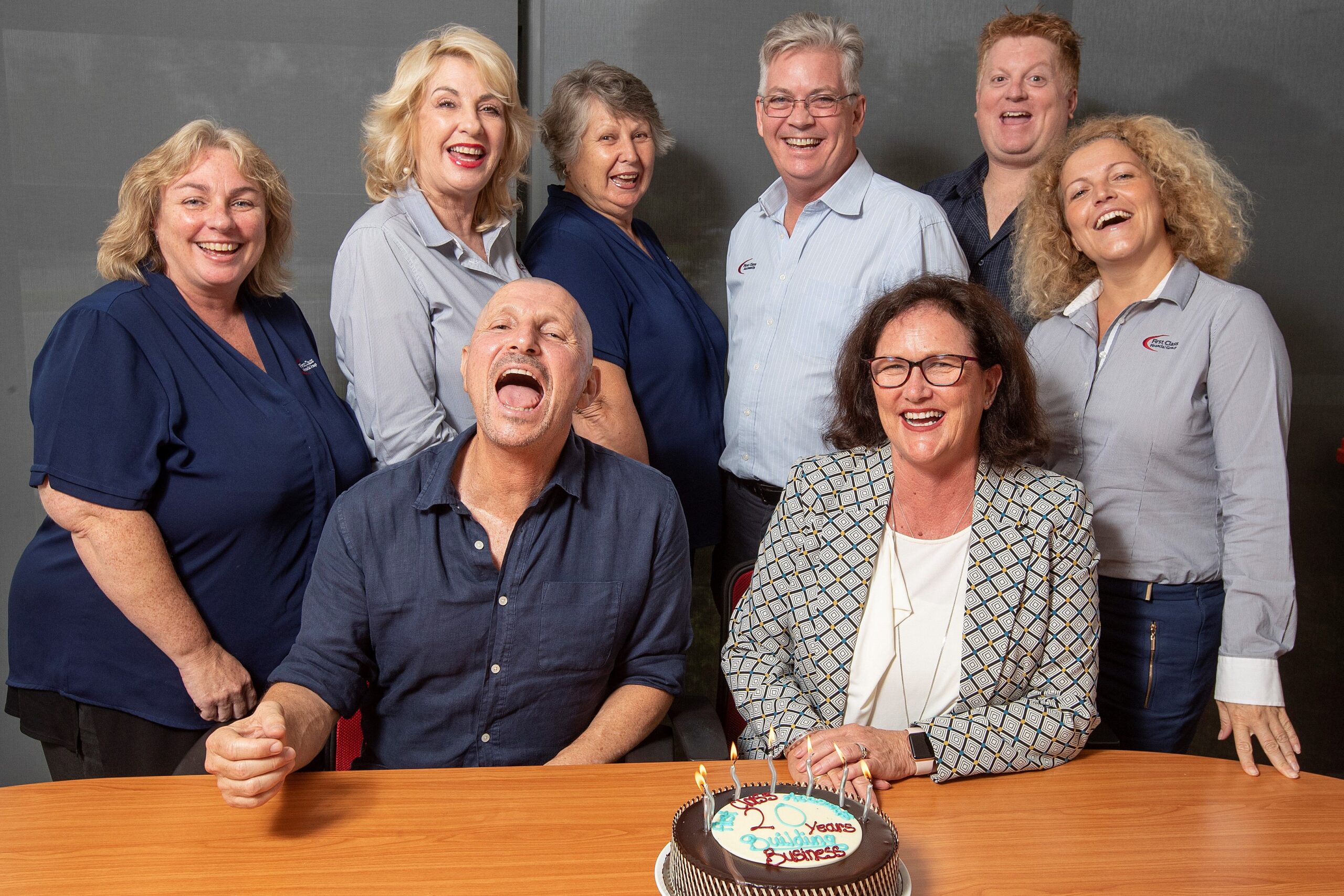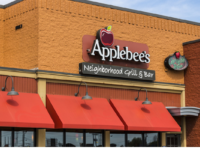First Class Accounts has survived and thrived for an impressive 20 years. So where to now for this national franchise chain?
Debbie Stanton has been a franchise support team member so she knows exactly what it takes to deliver for franchisees. And as general manager she’s keen to ensure all the changes undergone by this 20-year-old business bear fruit in the best way – by giving franchisees a future.
“I tell my team franchisees are the only reason we are here, franchisees are our job. We have to give them everything we can.
“If franchisees are not successful, we’re not successful. If they are profitable and they get everything they need, recruitment is easy.
“Our role is to ensure harmony in the network.”
Stanton has seen how detrimental it can be when a business takes its focus away from the franchisees. First Class Accounts has had two previous owners in its two-decade history.
“We’ve had the owners who started the business, who sold to a company from New Zealand which then aligned the business with another product.
“When the original owners sold, there was a lot of division among franchisees; they were concerned about what was going on. As it was a family business they felt a little let down.”
The business was then purchased by a group of stakeholders who’d been in business since 2011.
Stanton moved up from her franchise support role to take on the general manager position.

Admitting the changes have rocked the boat in the past, she points out now the set-up is reliant on a team with brand longevity.
“The culture of the national office is very strong. Everybody gets a little bit nervous but we’ve treated the office as a business in itself. And franchisees never missed a beat.
“The previous owners lost direction a little … but we rescued the franchisees, we’re here and listening.”
The new management team focused on transparency and won back that trust.
“You have a sense of obligation to their future. They’ve entrusted you with everything to be successful. You take a lot of that on board.”
Inevitably, new management meant a new way of working, and embracing change. The pace of change proved too much for some franchisees, who left the business. However, Stanton insists those who did leave are still great advocates for the brand and joined in recent 20-year celebrations for the accounting network.
Looking ahead to challenges
The pace of technological change has ensured First Class Accounts is cloud-based and automated, and that puts the brand in a strong position to provide relevant support for clients who are themselves battling with constantly changing rules and requirements.
The business has broadened beyond bookkeeping to include business consultancy.
From bookkeeping through to cash flow management, massive changes in payroll, HR issues related to certain industries … all these can be handled by franchisees, easing up the pressure on their clients.
“Software partners are getting more advanced, all going into other spaces, they talk about being tech partners, they are changing. So our bookkeepers keep up to date so they can tell what’s right for their client. There is always something that can improve efficiencies.
“We align ourselves with the leaders in these industries. We can get our franchisees involved in beta testing of products. That encourages business owners to think ‘First Class Accounts franchisees are experienced so let’s use them’.”
Recruiting franchisees
First Class Accounts takes on about 20 to 25 new franchisees a year, a cautious number that Stanton believes keeps the momentum of the brand without overloading the marketplace.
Training and support is crucial.
“We just want to have great bookkeepers, great branding. Every franchise relies on sales to help business growth, we want to put all our energies into keeping franchisees profitable, keep retention going.”
Stanton points to an “extremely good retention rate” with three five-year terms on offer. She believes franchisees stay longer in the business because fees are reduced over time.
“Because the draw on head office is in the early years, service fees are reduced. Its user pays and we just have an admin fee on renewal.
“The team here is really dedicated to see franchisees succeed. We’ve all stayed because we have the same ethos. They are our focus.
“Hand on heart, we want franchisees to be successful. If they can get end results, everyone is happy.”
This is an edited extract from the Inside Franchise Business May-July digital edition – download the magazine for free here to read the full article and other leadership stories.













